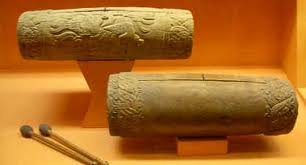Understanding The Tun Tin Tun Sahur Meaning: The Heartbeat Of Ramadan Mornings
There's a special kind of melody that gently stirs millions awake during the holy month of Ramadan. It's not quite a song, yet it holds a rhythm, a very distinct call that signals it's time for the pre-dawn meal. This sound, often described as "tun tin tun," is more than just noise; it's a deeply cherished part of the Ramadan experience for so many people around the globe, you know?
This rhythmic pattern, this "tun tin tun sahur" meaning, truly carries a profound cultural and spiritual weight. It's a wake-up call, yes, but it’s also a reminder of community, of shared devotion, and of traditions passed down through generations. It helps set the tone for the day's fasting, a moment of togetherness before the dawn breaks, so it's almost a sacred sound in a way.
Now, it's interesting, because when we hear the word "tun" on its own, it can make us think of a large cask, perhaps for holding wine or other liquids, as in the historical usage of the word. Or maybe even a specific volume measurement, like a modern tun being about 954 litres, as a matter of fact. However, when we talk about "tun tin tun sahur," we're not referring to barrels or measurements at all. Instead, this phrase points to a unique soundscape, a truly human-centric signal that has become synonymous with the blessed mornings of Ramadan, you see?
Table of Contents
- The Rhythmic Call to Sahur: More Than Just a Sound
- A Timeless Tradition: The Musaharati and Their Legacy
- Instruments of Awakening: The Sounds of Sahur
- Modern Echoes: Keeping the Tradition Alive
- The Spiritual and Physical Importance of Sahur
- Regional Variations: A World of Sahur Calls
- Personal Stories and the Feeling of Nostalgia
- Preserving a Cherished Heritage
- Frequently Asked Questions
The Rhythmic Call to Sahur: More Than Just a Sound
The phrase "tun tin tun sahur" basically describes the distinct percussive sounds made by individuals or groups who walk through neighborhoods before dawn during Ramadan. Their purpose? To wake up fasting Muslims for sahur, the essential pre-dawn meal. This isn't just a simple knock on the door; it's a rhythmic, often melodic, series of beats that resonate through the quiet morning air, kind of like a gentle yet firm invitation. It's a sound that many people grow up with, and it becomes deeply ingrained in their memories of Ramadan, you know?
It's typically created by striking a drum, perhaps a small tabla, a larger bass drum, or even just a simple hand drum. The "tun tin tun" isn't a fixed, universal rhythm, but rather an onomatopoeic way to describe the varied beats that signal the arrival of the sahur caller. It's a sound that carries warmth and a sense of care, a communal effort to ensure everyone gets their meal before the day's fast begins. This collective experience, honestly, helps strengthen the bonds within a community, making Ramadan feel even more special, you could say.
This early morning serenade, for many, is the very essence of Ramadan mornings. It's a unique sound that stands apart from the usual sounds of daily life. It's a reminder that something significant is happening, a call to prepare not just physically, but spiritually too, for the day ahead. The rhythm, in a way, becomes a gentle nudge, a comforting presence in the quiet hours before sunrise, pretty much.
A Timeless Tradition: The Musaharati and Their Legacy
The practice of waking people for

Artesanias de Irma Mijangos: Tun

tun - photo/picture definition at Photo Dictionary - tun word and

Lo Especial de mi GuateBella: El Tun